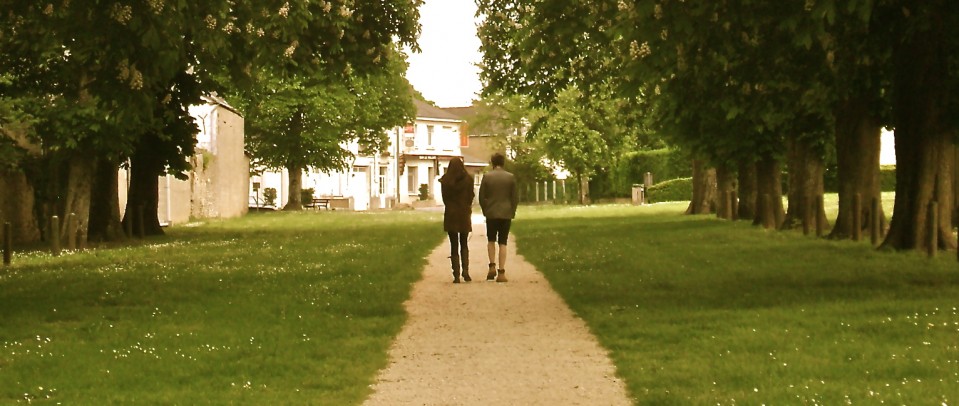Tags
We begin this evening with our protagonist, fictitious, of course. We’ll call him The Boy.
He is a man, but the appellation is evident on account of an emotional fragility; let’s not call it immaturity. It’s too harsh, and it smarts for him when he’s labelled as such.
We all have our ups and downs when it comes to love and relationships. Swingsets and roundabouts, I believe is the phrase that’s thrown about between the young these days. You go up, down, round and round, and all things being equal you ought to finish up where you once began.
However, it’s often not so simple. There’s a trauma, a scarring that occurs somewhere along the the line. And that’s how The Boy reaches this point where we meet him. Given the hurt of the past, he is seemingly unable to unearth that previously accessible passion which was once his in situations of Love. Now, there are occasions in which Love beckons to him, yet he turns his head, and therein lies the mystery, the symptom of an underlying disease that we seek to cure.
On one hand, speaks the rational voice, he is indeed correct. How could you possibly believe that this time, of all the many permutations and the complete randomness, that something could come where before there was nought? There’s simply not enough, the puzzle pieces do not fit. There may be an initial burst of enthusiasm and excitement, but then, we do not coincide here, at this point, at this point and this. It’s a Venn diagram, and the circles are too far apart. Surely for this to work, the circles must meet, and a perfect storm of the intangible, the emotional and the rational can come together?
Yet there is another voice, one that is a little more troubling. The Boy hesitates to read too far beneath the surface, just as we do.
There are other likely reasons that drive his motivations. Firstly, there is a matter of expectation. What does The Boy expect to find, in this of all worlds, crazy and mixed up? Those two circles will never perfectly align, surely. To advance both the mathematical and intertextual analogy, the odds are surely never in our favour, when it comes to this particular matter. At what point does one settle for less, so to speak? For that’s what it really is, no? Settling. If the two circles have not become one, then there is the inherent space where compromise must be made.
Is it impossible to imagine that somewhere, those compromises need not be made? That the circles truly are bounded by one another?
The Boy does not like compromise, but he also recognises that his conception of compromise is possibly (though he likes to pretend unlikely) also a veneer of self-protection. For if one is always aiming for the unknown ideal, then it becomes easy to deflect those circumstances that are found wanting. Perhaps his disdain for compromise is in fact a means of not progressing beyond a particular Point. Because as we all know, once you pass that Point, there is no return. What is there to be feared, exactly? A multitude, if we look closely. Rejection, first and foremost. If one does not pass beyond that Point, then rejection is simply a hypothetical, a future conjecture that The Boy doesn’t necessarily enjoy confronting.
Yet this line of thought seems simplistic. We know, from first hand knowledge of The Boy that it is not this fear of rejection that drives him. Rather, something more opposite. A sense of conceitedness, perhaps it could be called. He is deserving of that higher ideal of which we spoke earlier, at least that’s what he believes. To be struck like a lightning bolt of certainty, quivering in the space and moment where he was hit, that is the destiny that he deserves. And he fears that compromise will steal that destiny away from him like a thief in the night.
But wait. What if the compromise of his ideals could in fact lead to those very same lofty heights of Love? If there are twists, turns and obstacles, and that the ultimate destination is difficult to see through the fog, is he wrong to doubt that the path will take him there? Wrong, perhaps no. But we could forgive him for his doubt, surely.
So what are our fundamentals.
A true knowledge that compromise is worthless, that a cheapened reality is simply a counterfeit copy of the real thing?
Or that grasping at straws of an imagined perfection will only serve to hinder both a longer and yes, more fickle path to true happiness. Perhaps the ideal is misplaced from the start, an artefact of self-protection, and that The Boy is denying himself true happiness by waiting for a train that will never arrive.

Write. Just write.
Write like there’s no tomorrow.
Write as though you’ll never write again.
Write for yourself.
Write for your unborn great grandchildren.
Write for your long dead fore-bearers.
Above all – just write.